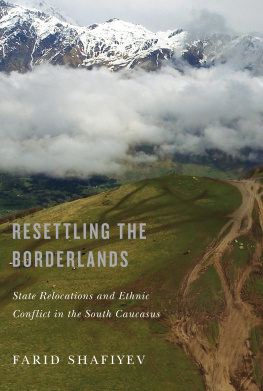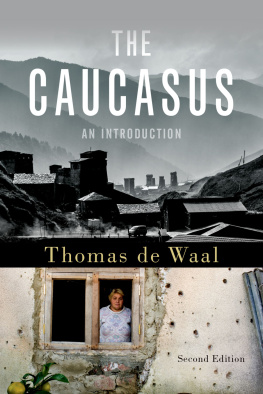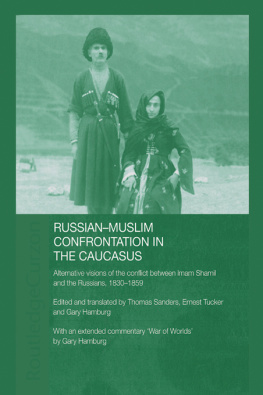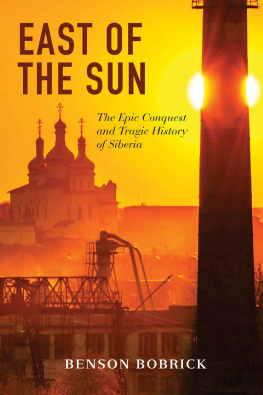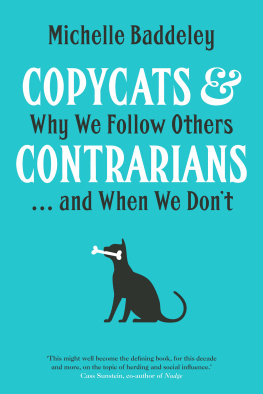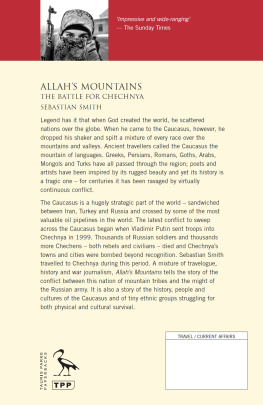First published in 1908
by Longmans, Green & Co.
Published in 1999
by Curzon Press
This edition Curzon Press 1999
RoutledgeCurzon
2 Park Square, Milton Park, Abingdon, Oxon, OX14 4RN
711 Third Avenue, New York, NY 10017, USA
RoutledgeCurzon is an imprint of the Taylor & Francis Group
First issued in paperback 2011
Additional designwork by Nicholas Awde/DesertHearts
All rights reserved. No part of this book may be reprinted or reproduced or utilised in any form or by electronic, mechanical, or other means, now known or hereafter invented, including photocopying and recording, or in any information storage or retrieval system, without permission in writing from the publishers.
British Library Cataloguing in Publication Data
A catalogue record for this book is available from the British Library
Library of Congress in Publication Data
A catalog record for this book has been requested
ISBN 978-0-700-70634-1 (hbk)
ISBN 978-0-415-515184 (pbk)
ISBN 978-1-136-80100-6 (ePub)
Publishers Note
The publisher has gone to great lengths to ensure the quality of this reprint but points out that some imperfections in the original may be apparent
FOREWORD
It is said of Sir Winston Churchill that when once he was asked whether history repeated itself, he answered that it did and that, unfortunately, it did so each time with more catastrophic results. Recent events in the Caucasus would, no doubt, have been seen by him as proving that statement, since the present war in Chechenia is reminiscent of the wars fought there in the eighteenth and nineteenth centuries. Places mentioned in the news of today, such as Avturi, Shali, Shatoi, Gudermes and others, are loaded with memories of many a battle beginning with the times of Sheikh Mansur and up to the Bolshevik Revolution and the many struggles known collectively as the Civil War that followed it.
Yet this resemblance is not limited to geography : Present Russian reports and descriptions of battles, moves and actions fit almost perfectly with past ones ; gross exaggerations of enemy and minimalization of Russian losses ; triumphant announcements of victories , which at best have later proven to be hollow ; and, once that has become public knowledge, accusations that it had been snatched away at the last moment because the generals were denied the freedom to do whatever they deemed necessary ; the breaking by the Russians of their peace agreements. More importantly, there was the Russian failure to take their enemy seriously or to thoroughly plan, prepare and train for the expected battle. Thus, in the case of so many present-day news reports, all one has to do is change dates, names and weapons in order to find oneself in an identical situation seventy, one hundred, one hundred-and-fifty or, indeed, two hundred years ago.
This dj vu has only emphasised the general need to understand the rootshistorical and otherwiseof the war in Chechenia and an additional dozen or so recent conflicts in the Caucasus. This long overdue reprint of Baddeleys The Russian Conquest of the Caucasusone of the best books on this subject in general, and almost the only one in Englishoffers the reader this much-needed historical background and more. It tells a fascinating, to many even exotic, story and tells it superbly. But to historians this book is of special interest, since it provides an example of how history should be written.
John Frederick Baddeley (18541940) was the second son of a Royal Cavalry captain. His father died when John was at a tender age, leaving his mother to care for the children. The young Baddeley received the typical education of a gentleman. In his early twenties he became a protg of Count Peter Shuvalov, then Russian ambassador to the Court of St. James, and as such went in 1879 for a lengthy stay in the Counts estates in Russia. He was to remain in Russia for the better part of the following four decades, first as the St. Petersburg correspondent of the London Standard, then as a businessman involved in various commercial ventures in different parts of the Russian Empire as far apart as Siberia and the Caucasus.
With fluent Russian and blessed with a likeable personality, Baddeley fitted easily into the various social and ethnic groups and quickly won their confidence. Great intellectual curiosity coupled with what must have been a burning sense of adventure drove him to travel extensively throughout the dominions of the Tsar. These travels enabled him to gain additional insights into his extensive reading, not to say direct impressions and made him into one of the (if not the) most informed and knowledgeable Englishmen in Russian affairs of his time.
The Russian Conquest of the Caucasus, his first book, was published in 1908, and was followed by Russia, Mongolia and China (1919; which won the Gold Medal of the Royal Geographic Society), Russia in the Eighties (1921), The Rugged Flanks of the Caucasus (1940, in two volumes), as well as many articles. Baddeley wrote his first book when he was in his early fifties, and though somewhat overlooked in comparison to his later works, it is a product of decades of research, observation and reflection as well as a mature, and as already stated, exemplary historical study.
In his Introduction to the book, Baddeley writes : I offer this book to the public, claiming for it only that it is a true statement of the facts, as far as I could discover them, soberly written, and free of bias.
With regard to his declaration of freedom of bias too, the author did his very best to achieve it. The views, attitudes and convictions of us all are to a great extent shaped by our time and environmentboth geographical and social. In the same way our prejudices and blind spots are also shaped to a great extent. Baddeley was no exception. As a Victorian gentleman, he shared in many of the beliefs of his peers. His world was decidedly Eurocentric and Anglocentric, and therefore, the Russian version was usually (but by no means always) no doubt the correct one.
The people of the Caucasus, like other non-Europeans (or indeed many European minorities living in mountainous areas, such as the Scottish Highlanders), were natives;
But his world was also one of selective justice and fairness, and these led him to condemn in no uncertain terms Russian conduct during the conquest of the Caucasus :
It would be unfair to the natives to forget that, time after time, from their earliest contact with the northern invaders down to the last shameful act of the conquest, the wholesale expatriation of the western tribes in 1864, we come upon evidence of Russias unjust and even treacherous dealing with them, and this though we are perforce confined to Russian sources for our information.
Furthermore, such methods were, in his view, counterproductive and Baddeley wondered why Russian writers fail to see any connection between such methods and the Murid war.
Like so many of his background and generation, Baddeley was greatly fascinated by exotic, semi savage peoples and he sought them out. In his case, these were the Caucasian Mountaineers. The fact that they were the underdog treated unfairly by the Russians must have contributed its share. These, however, did not render him anti-Russian, as some critics have suggested. Nor was he pro-Russian, as others claimed. He set out to write from an impartial point of view and achieved his goal with remarkable success, much like his predecessors, those historians of Empire, Gibbon and Carlyle. Gibbon is of particular relevance since he echoes this impartiality while writing about the Roman Empire, yet at the same time invokes a pervading sense of cultural empathy. It is only an incorrect perception of the meaning of impartiality that gives rise to any claims of -biasan interpretation that seeks to merge the widely divergent concepts of impartiality and moral indifference.






